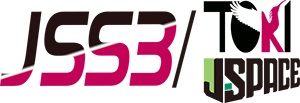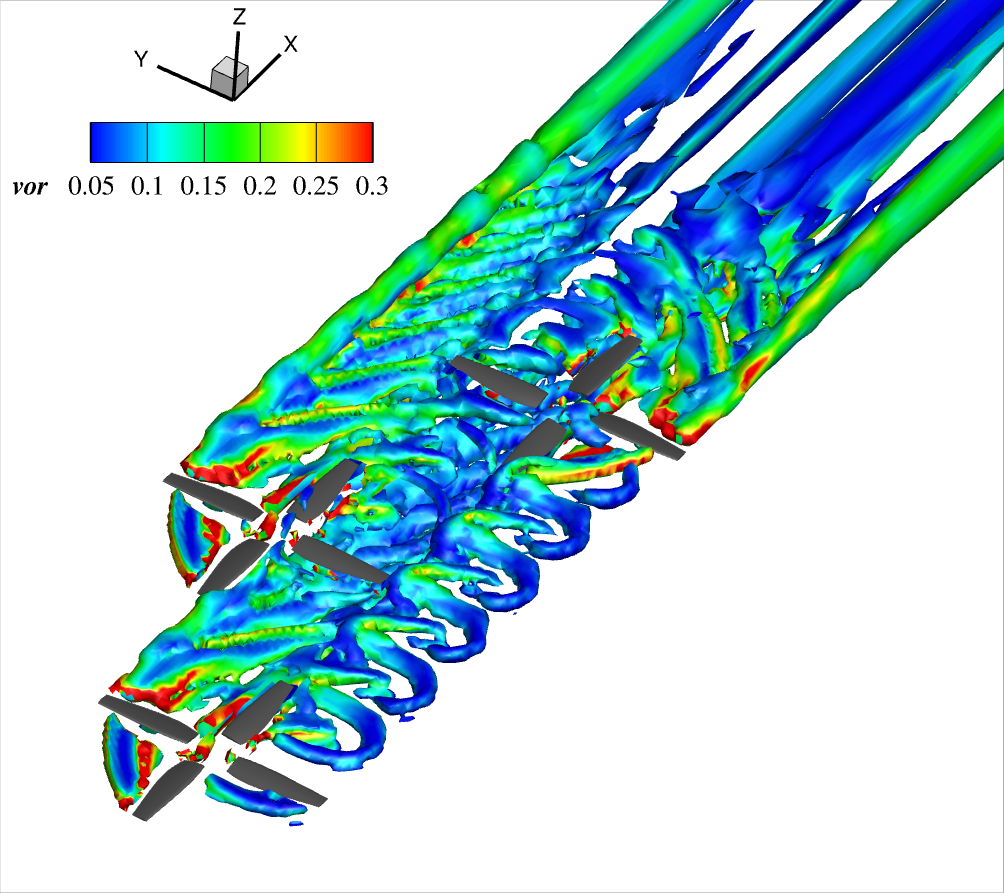Numerical Simulation of Multirotor
JAXA Supercomputer System Annual Report February 2024-January 2025
Report Number: R24ETET45
Subject Category: Skills Acquisition System
- Responsible Representative: Kanako Yasue, Aviation Technology Division Aviation Utilization Expansion Innovation Hub
- Contact Information: Hideaki Sugawara(sugawara.hideaki@jaxa.jp)
- Members: Hideaki Sugawara, Kosuke Saito, Shunsuke Takeuchi, Yasutada Tanabe
Abstract
Multirotor aircraft, such as drones and electric vertical take-off and landing (eVTOL) aircraft, generate complex flow fields due to interactions among multiple rotors. These flow fields interferes with various components of the aircraft, affecting aerodynamic performance and thrust fluctuations. This project focuses on the aerodynamic interference phenomena in multirotor aircraft and aims to develop methods for enhancing rotor performance and mitigating thrust fluctuations.
Reference URL
N/A
Reasons and benefits of using JAXA Supercomputer System
The aerodynamic analysis of a multirotor requires complex flow fields and vortices to be captured and large-scale analysis using a supercomputer.
Achievements of the Year
The aerodynamic analysis of a multirotor has been conducted using rFlow3D, a CFD analysis tool for rotorcraft. Multiple rotors were arranged, and the effects of rotor speed, rotational direction, and rotor layout on the aerodynamic performance of the multirotor were investigated (Fig.1). The analysis results indicate that by appropriately setting the rotor speed, rotational direction and rotor layout, it is possible to suppress the thrust fluctuations while mitigating the performance degradation caused by aerodynamic interference.
Publications
N/A
Usage of JSS
Computational Information
- Process Parallelization Methods: N/A
- Thread Parallelization Methods: OpenMP
- Number of Processes: 1
- Elapsed Time per Case: 336 Hour(s)
JSS3 Resources Used
Fraction of Usage in Total Resources*1(%): 0.21
Details
Please refer to System Configuration of JSS3 for the system configuration and major specifications of JSS3.
| System Name | CPU Resources Used(Core x Hours) | Fraction of Usage*2(%) |
|---|---|---|
| TOKI-SORA | 0.00 | 0.00 |
| TOKI-ST | 1762439.85 | 1.81 |
| TOKI-GP | 0.00 | 0.00 |
| TOKI-XM | 0.00 | 0.00 |
| TOKI-LM | 0.00 | 0.00 |
| TOKI-TST | 0.00 | 0.00 |
| TOKI-TGP | 0.00 | 0.00 |
| TOKI-TLM | 0.00 | 0.00 |
| File System Name | Storage Assigned(GiB) | Fraction of Usage*2(%) |
|---|---|---|
| /home | 184.64 | 0.12 |
| /data and /data2 | 129708.88 | 0.62 |
| /ssd | 1891.60 | 0.10 |
| Archiver Name | Storage Used(TiB) | Fraction of Usage*2(%) |
|---|---|---|
| J-SPACE | 0.00 | 0.00 |
*1: Fraction of Usage in Total Resources: Weighted average of three resource types (Computing, File System, and Archiver).
*2: Fraction of Usage:Percentage of usage relative to each resource used in one year.
ISV Software Licenses Used
| ISV Software Licenses Used(Hours) | Fraction of Usage*2(%) | |
|---|---|---|
| ISV Software Licenses(Total) | 36.59 | 0.02 |
*2: Fraction of Usage:Percentage of usage relative to each resource used in one year.
JAXA Supercomputer System Annual Report February 2024-January 2025



